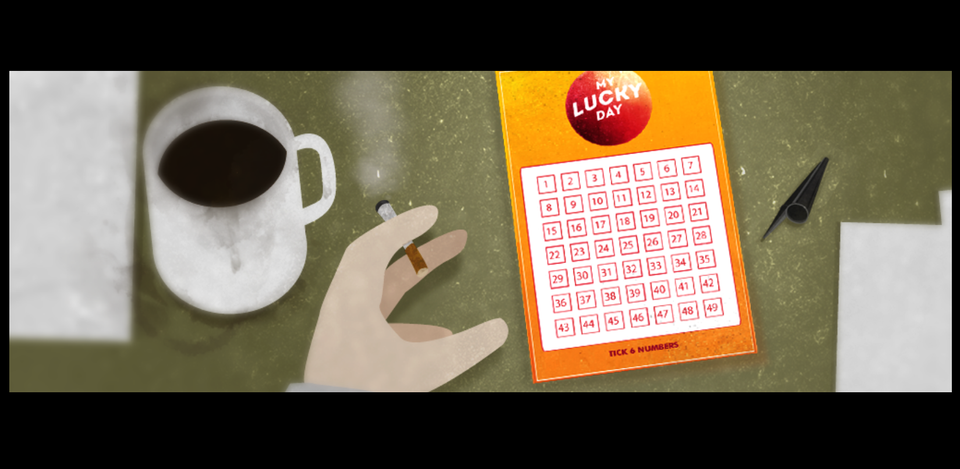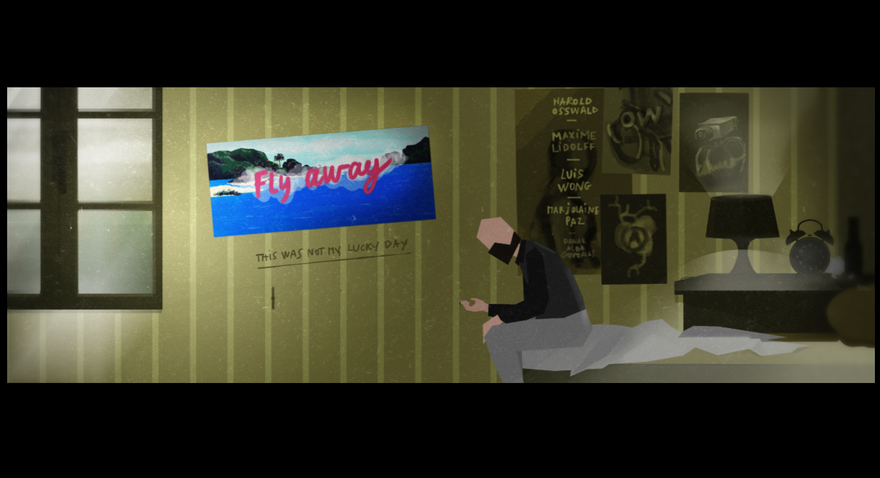My Lucky Day exposes the lottery for what it is: a poor man’s tax

“The Lottery, with its weekly pay-out of enormous prizes, was the one public event to which the proles paid serious attention. It was probable that there were some millions of proles for whom the Lottery was the principal if not the only reason for remaining alive. It was their delight, their folly, their anodyne, their intellectual stimulant. Where the Lottery was concerned, even people who could barely read and write seemed capable of intricate calculations and staggering feats of memory. There was a whole tribe of men who made their living simply by selling systems, forecasts, and lucky amulets. Winston had nothing to do with the Lottery, which was managed by the Ministry of Plenty, but he was aware (indeed everyone in the party was aware) that the prizes were largely imaginary. Only small sums were actually paid out, the winners of the big prizes being nonexistent persons.” – George Orwell, 1984
///
Everyone loves a lottery. You pay minimal amount of money, sometimes on a weekly basis, for a big dream that appears only inches outside your grasp. You give the cashier just $5 for scratch tickets, but what you’re buying is much bigger than a scratch ticket. You’re buying hope—a hope that keeps the dingy walls of your local alcohol distributor from closing in on you.

When you look at the statistics for lotteries, a disturbing pattern emerges. This is not a game for all to play (and inevitably lose) in good fun. Everyone from Orwell to Business Insider agrees: the lottery is a thinly veiled poor man’s tax. A disproportionate amount of people who cannot spare the cash flow for a gambling habit participate (read: lose) in the lottery, and the government is only becoming increasingly dependent on their loses. In fact, a 2008 Carnegie Mellon University study declared the lottery “a vicious cycle that not only exploits low-income individuals.” On NPR, Cornell University economics and management professor David Just calls the lottery’s fueling force “the desperation play. People don’t treat it like entertainment. Instead those—particularly those who are poor—are treating this more as an investment opportunity. It’s their Hail Mary pass to try and make it big.”
“It’s their Hail Mary pass to try and make it big”
My Lucky Day is a game that takes umbrage at the “just for fun” logic many use to justify the existence of the lottery. You play as a man who dreams of picture-perfect beaches and boat side mai tais. In reality, he’s a hunched over, balding smoker who shuffles between dimly lit rooms and his local lottery distributor. There is no definite end to My Lucky Day. It begins with a dream, moves on to a waking nightmare and the harsh glow of a TV, and ends with the failure of said dream—before it repeats, again and again.
In this game, the lottery acts as the common ground between the world we’re promised, and the world we’re actually given. While advertisements fuel the protagonists dreams, the lottery cashes in on the impossibility of his imagined future. The most active interaction in the entire game is the simple act of picking up a coin—representing the protagonist’s hard earned money, presumably—and dumping it onto the lottery distributor’s counter. True to the statistics, My Lucky Day‘s main character depicts the routine of an unemployed or retired person who appears to lack much else to live, outside of fantasies.

In the three times I played through My Lucky Day, I never once came even close to feeling a sliver of excitement or fun when the lottery numbers were called out. From the very first number onward, it becomes clear that you are not a winner. And on the other side of this feeling is the certainty that you are a loser, confirmed over and over again by the sing-song voice of the lottery presenter.
The game’s system appears to mimic the odds of an actual lottery, so the team of creators behind My Lucky Day (which includes a Kill Screen writer, Luis Wong) plan to track every player’s results. “The most played number is 23, it has been played 5 times,” reads the latest update on the game’s website. “No player has won yet.”
You can play the numbers yourself in My Lucky Day for free on any browser.



